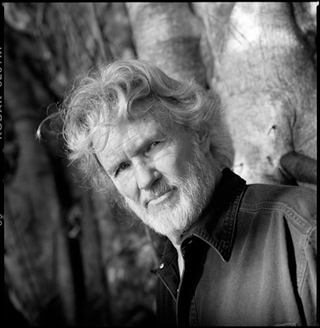A fella from the Modern School of Film talked to archetypal outlaw country songwriter Kris Kristofferson after a screening of director John Ford's 1940 commie manifesto "The Grapes of Wrath." That seemed like a good idea.
"Grapes" on a big screen pulls you into John Steinbeck's Dust Bowl and holds you there for two-plus hours, which is an hour longer than you want to stay. Unrelenting bleakness and desperation discourage showtime jollies, and Ford's atmosphere feels pretty damn real. The extended tension builds to the snapping point before the viewer can catch a doubtful breath. Cinematographer Gregg Toland's gorgeous black-and-white lighting throws ominous shadows on the craggy visages of Henry Fonda and John Carradine; the deep focus on hazy mountain horizons makes you feel helpless awe and solitude; the characters' incomprehension and monosyllabic dialogue ring mostly true.
Probably the interviewer did not expect Rhodes scholar Kristofferson to be monosyllabic too. He might not have known K.K. has memory loss, attributed in a recent Huffington Post interview to ancient football and boxing injuries. Did Kristofferson ever meet Ford star John Wayne? Yeah. Did he know that Ford and he were both children of military men? Uh. What did he like about "Grapes"? The humanity.
A nice moment arrived, though, when Kristofferson responded to painful flattery by calling the interviewer "you silver-tongued devil." It might not have been the first time the singer referenced his 1971 song "The Silver-Tongued Devil and I" in similar circumstances, but it was funny.
Before the talking, Kristofferson first hesitantly and then confidently plucked and growled one of his vivid political plaints (sorry I didn't get the title), and then performed "Here Comes That Rainbow Again," whose lyrics were inspired by a wrenching/inspiring café scene in "Grapes." Righteous leftism indeed.
Like Steinbeck, Kristofferson sympathizes with the working man. Born in Texas, he can identify with the Okies in "Grapes." Unlike them, he had an education. But he knows the value of single syllables, and embodies the virtue of humility. So although he might not have been the spark plug the interviewer hoped for, in retrospect he was just the right guy.

